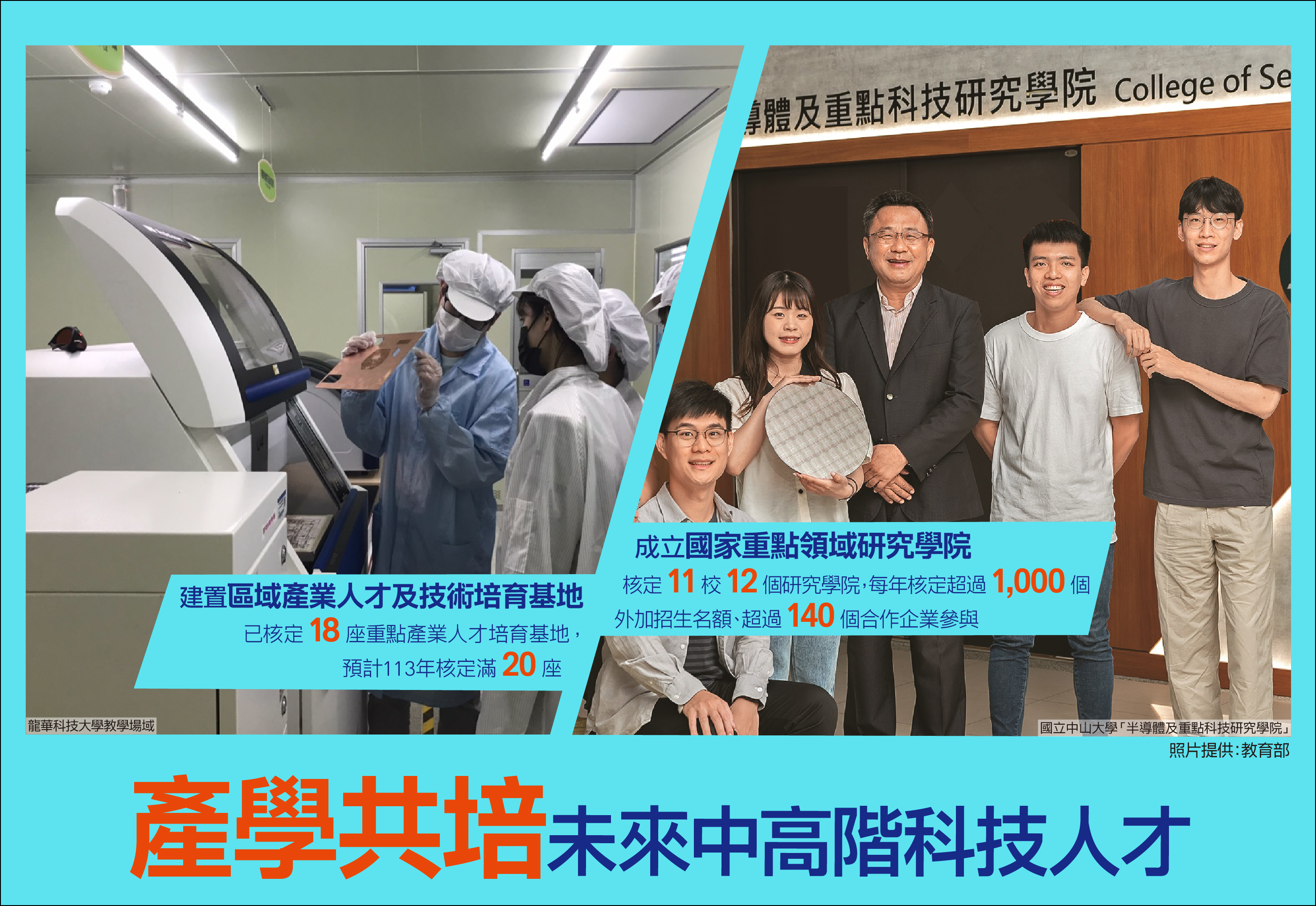We are currently planning to promote a completely new model of industry-academia collaboration by partnering with top-tier universities and research institutions. This initiative offers employees the opportunity to pursue doctoral programs while remaining in their positions, aiming to cultivate highly specialized professionals who are well-versed in both academic theory and industrial practice. Through this collaborative program, we seek to drive innovation and strengthen the competitiveness of participating companies.
Target Regions and Implementation Methods
We initially plan to launch collaborative initiatives in two regions: Taiwan and Japan. Drawing from successful models such as the "Industrial PhD Programs" and "In-House Doctoral Programs" already established in both countries, we are considering a hybrid implementation. The program will be driven through corporate recommendations, co-designed research topics, and the sharing of research resources. Currently, we are in the planning and evaluation phase, and will begin step-by-step discussions with relevant universities and research institutions in the near future.
📍 Implementation in Japan
- Collaboration Model:
- It will be promoted as a “Corporate PhD Program (企業内博士課程)” and take the form of so-called “in-house corporate doctoral candidates (企業ドクター).” Employees will hold both their corporate positions and university enrollment status at the same time.
- In addition, a “Special Collaborative Researcher System” will be introduced to further deepen research collaboration between industry and academia.
- Partner Universities and Institutions (Planned):
- The University of Tokyo
- Kyoto University
- Tohoku University
- Waseda University
- Keio University
- Admission Pathways & Framework:
- Admission will be through an in-house recommendation exam or a partnership-based recommendation admission system (recommended enrollment).
- Employees will continue working full-time at their companies while receiving regular research guidance from academic advisors one day per week. On the remaining days, they will engage in industrial research and development within the company.
- Once a month, a research progress meeting will be held either on the university campus or online to ensure the progress and quality of the research.
- Once a year, participants will attend the university’s doctoral research presentation conference to promote research exchange between industry and academia.
- Funding Plan (Source of Expenses):
- Corporate Funding: The company will position this initiative as an investment in advanced human capital and will cover tuition fees and necessary research expenses.
- Government Grants: Research funding will be leveraged from relevant Japanese government agencies, such as NEDO (New Energy and Industrial Technology Development Organization).
- Research Grant Applications by Employees: Employees themselves may apply for external research grants, such as KAKENHI from JSPS (Japan Society for the Promotion of Science), to reduce the financial burden on the company and enhance the flexibility of research funding.
- Requirements for Research Themes and Outcomes:
- Doctoral research themes must be closely aligned with the company’s R&D strategy, with a strong emphasis on producing concrete and practical outcomes.
- Doctoral dissertations must meet the standards required for academic degrees, with the goal of presenting papers at top-tier international conferences such as ACL, NeurIPS, ICLR, and CVPR, thereby ensuring both the academic quality of the research and its impact on industry.
📍 Implementation in Taiwan
- Collaboration Model:
- In partnership with major universities and research institutions, we aim to jointly establish “Industrial PhD Programs,” “In-Service Doctoral Programs,” or “Industry-Academia Joint PhD Programs.”
- Partner Universities and Institutions (Planned):
- National Taiwan University
- National Tsing Hua University
- National Yang Ming Chiao Tung University
- National Cheng Kung University
- Academia Sinica
- Other top-tier domestic institutions with proven industry-academic collaboration records
- Admission Pathways:
- Corporate Recommendation: High-potential employees identified by their companies will be recommended and supported for admission.
- Special Admission Schemes: Flexible application processes may be arranged, including special quotas for transfer or recommendation-based admission.
- Government Support Opportunities: Funding may be available under the Ministry of Education’s “Advanced Talent Development Program for Industry.”
- Funding Plan:
- Government Grants: Partial funding may be provided through research collaboration programs under the Ministry of Science and Technology (MOST) or Ministry of Education.
- Corporate Funding: Companies will fully or partially subsidize tuition and research-related costs.
- Project-Based Grants: If an employee’s research aligns with government-funded projects, they may apply for corresponding research grants.
- Research and Dissertation Goals:
- Employees will maintain their corporate positions while conducting research within the company that is highly relevant to the organization's needs.
- Research outcomes must not only meet the academic standards required for obtaining a doctoral degree but also be directly applicable to the company's practical operations, thereby achieving a win-win for both academia and industry.







